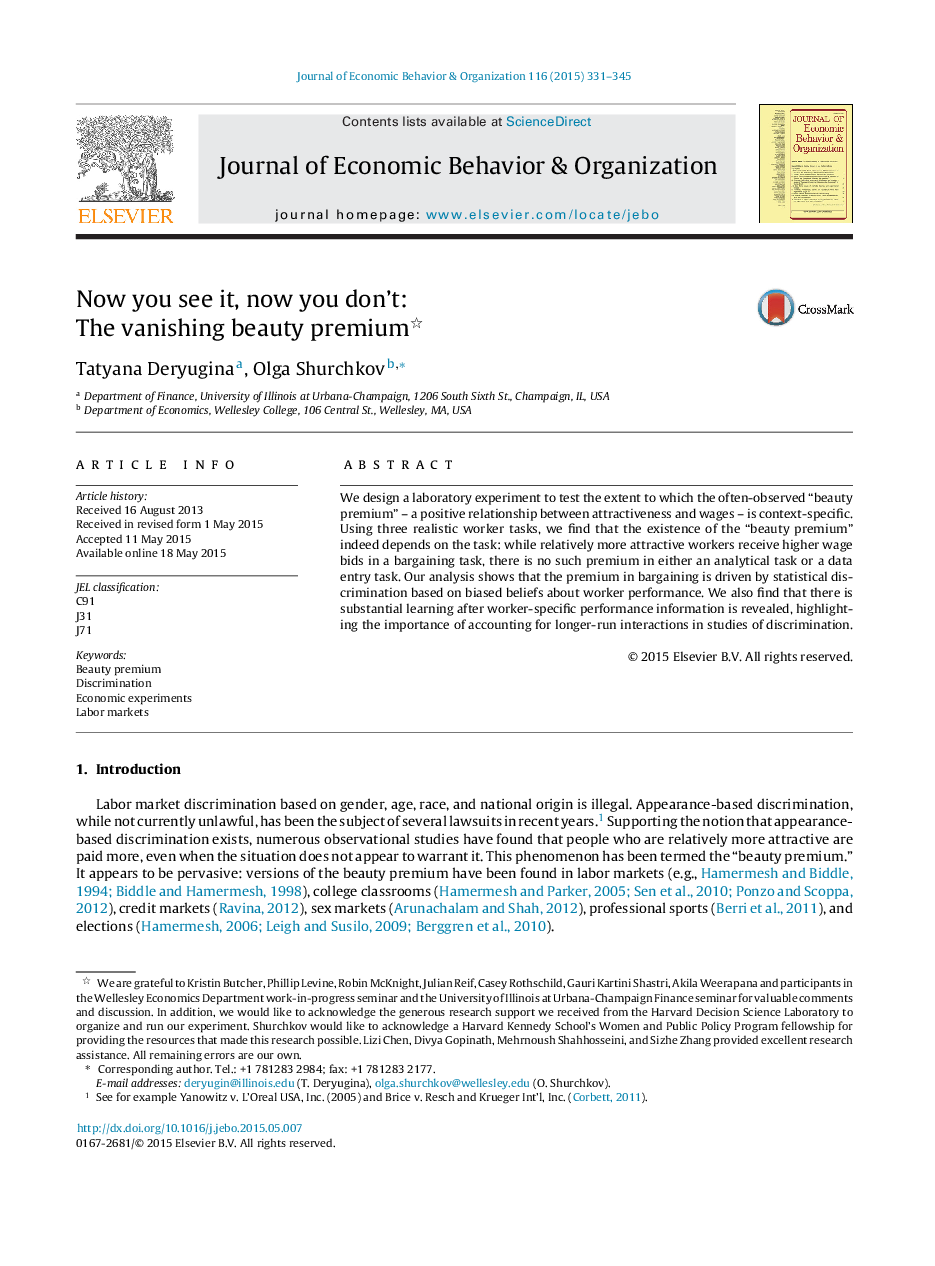| Article ID | Journal | Published Year | Pages | File Type |
|---|---|---|---|---|
| 7243153 | Journal of Economic Behavior & Organization | 2015 | 15 Pages |
Abstract
We design a laboratory experiment to test the extent to which the often-observed “beauty premium” - a positive relationship between attractiveness and wages - is context-specific. Using three realistic worker tasks, we find that the existence of the “beauty premium” indeed depends on the task: while relatively more attractive workers receive higher wage bids in a bargaining task, there is no such premium in either an analytical task or a data entry task. Our analysis shows that the premium in bargaining is driven by statistical discrimination based on biased beliefs about worker performance. We also find that there is substantial learning after worker-specific performance information is revealed, highlighting the importance of accounting for longer-run interactions in studies of discrimination.
Related Topics
Social Sciences and Humanities
Economics, Econometrics and Finance
Economics and Econometrics
Authors
Tatyana Deryugina, Olga Shurchkov,
